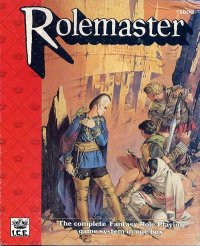I spent a few hours the other day reading Transformers fan fiction.
I know some of you are shaking your heads and thinking, “I always knew he would come to this point… but I hoped he wouldn’t.” And for the rest of you, yes: I am talking about fan-written fiction based on the world of the Reagan-era transforming Robots In Disguise–Optimus Prime, Megatron, and the whole crew. But I’d like to think aloud a bit about this topic, because I have a dark confession to make: fan fiction, whether it’s about Voltron or G.I. Joe or the X-Files, fascinates me.
It doesn’t fascinate me in the sense that I particularly love reading it, although I’ve read some pieces of fan fiction that were enjoyable. Some fan fiction is, of course, quite wretched, for various reasons; much of it is badly written, and some of it exposes you to sanity-shattering ideas and images that will remain seared into your psyche until the merciful hand of Death finally ends the horror. (You know what I’m talking about; and if you don’t… cherish your innocence while it lasts. It is, alas, too late for me.)
But I don’t want to talk about the really bad stuff. The sort of fan fiction that interests me is the serious kind: the reasonably well-written, often lengthy, often surprisingly entertaining stories that people write in an earnest effort to explore and add depth to the characters and places of imaginary worlds not their own.
The question that always springs to my mind upon coming across fan art–whether it’s a story, a piece of artwork, or a song–is: Why didn’t this obviously talented person put their skills to use creating art that is their own?
Why are they pouring time and energy into writing stories set in, say, the Star Wars universe, when they have no real ownership of (and certainly no legal right to) that universe? Why spend hours sketching elaborate pictures of He-Man characters, when you could be drawing up fantastic images of your own creation? Why write long, introspective essays about the effects of war on the Decepticon Soundwave’s relationship with his family, when the same story with the names changed would be a perfectly respectable novella that isn’t tied to a cheesy (and copyrighted) ’80s cartoon universe? (Wait—Transformers can have children? But how do they *EMERGENCY BRAIN SHUTDOWN*)
My usual reaction–and I think the standard reaction–to fan fiction (and art, and music, etc.) is to see it as the result of stunted or broken creativity. These fans have trapped their own considerable creative potential in a box built by somebody else. They lack “true” creativity that would inspire them to create their own characters and worlds, and so they squander what artistic vision they have on other people’s work. This is an especially frustrating observation because some of the fan fiction/art out there is really, genuinely, good. A lot of it is written or drawn by people who, judging by the quality of their fan art, really could make a go of it in “real” art or literature, if they would only try. (Somehow, I don’t picture most fan fiction authors also writing a lot of original material at the same time, although this could be a false impression.)
But I find this reaction unsatisfying (and unduly harsh). For one thing, it’s fairly strict and demanding in its definition of “true creativity.” Over the years, I’ve come to suspect that there are different kinds of creativity out there, and that some people are extremely creative but would simply rather put that creativity to use refining others’ works, rather than “reinventing the wheel.” This creative eye spots (or invents) depth and nuance in characters and places that the rest of us casually dismiss. I don’t know why somebody would look at Soundwave (the Decepticon who transforms into a cassette player–admit it, you remember it well) and think “I’d really love to explore the emotional havoc the Transformers war is wreaking on his family life.” But hey, the end result is a story that’s strangely interesting and certainly adds depth to a cartoon character otherwise saddled with a completely one-dimensional personality. That might be a bit weird, but it’s not a bad thing, and if it’s either Soundwave fan fiction or no creative output at all from this amateur writer, I’ll take the fan fiction.
One of the reasons I’ve come to appreciate the odd creative value of fan fiction is that I see a lot of this type of creativity in myself, specifically as it’s evidenced in the way I play roleplaying games. I love to run roleplaying games, and as any gamer will tell you, it takes at least a modicum of creativity and storytelling ability to run a successful roleplaying game. But I have the hardest time in the world coming up with my own game and adventure ideas from scratch–I almost just can’t do it. After 15ish years of gaming, if I were given a blank notebook and instructions to write a cool game adventure, I would probably just stare blankly at the pages for a while before finally producing a stale and unoriginal variation of something I’d seen or read before.
But give me a pre-written adventure–where somebody else has sketched out an outline of the adventure and its characters–and I’m golden. I love taking adventures others have written and reworking them to fit my preferences and the interests of the friends with whom I’ll be gaming. I’ll often wind up practically rewriting the entire adventure–changing characters, locations, plotlines, dialogue, and everything else to fit my interests. Why, if I can competently rewrite and run somebody else’s adventure, don’t I just write my own from scratch? Because for some reason, I need a creative groundwork laid out for me before I can unleash my own creativity.
That’s why I’m hesitant to look down on fan art of any sort: it’s genuine creativity at work, and just because it’s using non-original ideas as a launching pad doesn’t lessen the value of the work put into it. It may be that this is an incomplete or underdeveloped creativity, but I suspect it’s more likely just a different creativity. It’s creativity that works best when the initial groundwork has been done, leaving the artist free to sketch out their own vision atop that foundation.
Let’s face it: your meticulously-written epic about the romantic tension between Storm Shadow and the Baroness isn’t going to launch you into the halls of literary fame, but if it’s the story your Muse demands of you… well, get out there and get writing.




 by
by 
 Here’s a fun one: an
Here’s a fun one: an  I’m out of town on another work-related trip, so not much gaming of any variety is going on. However, I made sure to pack a few RPGs, “just in case.” Just in case of what, I’m really not sure; but here’s what I packed:
I’m out of town on another work-related trip, so not much gaming of any variety is going on. However, I made sure to pack a few RPGs, “just in case.” Just in case of what, I’m really not sure; but here’s what I packed: